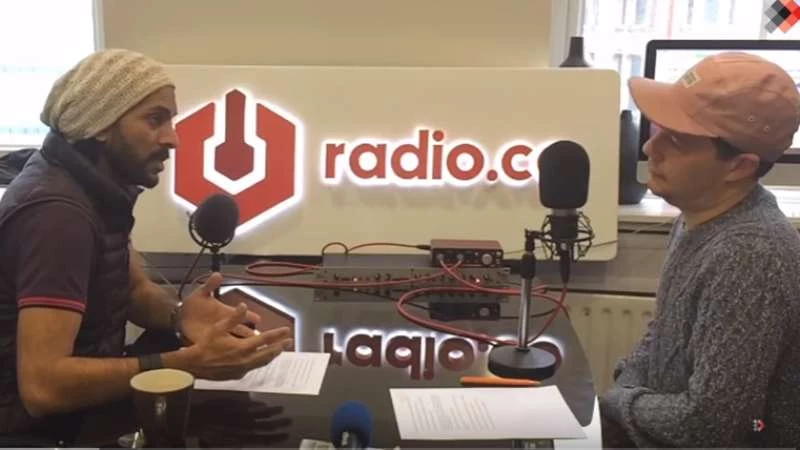As Syrians began to flee the country and become refugees, many of them took their smartphones with them.
The satellite linked devices help them to navigate traveling routes through Europe, stay connected to loved ones and sometimes document their experiences along the way.
However, outside of occasional media interviews, refugees have not had much of a chance to express themselves and tell their stories in their own words.
But now, with the help of Imran Azam, Syrian refugees are being empowered with skills that will help them to use their smartphones to tell their own stories through video and challenge the negative stereotyping they have been subjected to in much of mainstream media.
Azam, who is founder of a company called thisisREEL.co, has been traveling across the U.K. and Europe conducting workshops he calls The Art of Smartphone Filming Meetups with groups of journalists, entrepreneurs and regular people interested in experimenting with telling their own stories through video.
Recently he conducted one of his Smartphone Filming Meetups with a group of 15 Syrian refugees in Amsterdam.
In an audio interview with Caroline Scott published by Journalism.co.uk on August 23, Azam said that he has been wanting to connect with Syrian refugees for a while and teach them skills that could help to better their circumstances.
“The interesting thing about the smartphone,” he told Caroline, “is that regardless of socioeconomic background, almost everybody has one.”
“If you know how to use it properly, it can be a means by which to improve your personal situation.
“And what better way to do that than to tell your story using the most popular content medium at the moment, which is video.”
The first thing Azam taught the 15 refugee trainees in the Meetup group was that technically producing video stories is easy… the hard part is training yourself to visualize the story in video form beforehand and then shoot it according to the vision.
“It’s about trying to turn people into video storytellers, with the emphasis on the storytelling,” said Azam.
In order to do this, Azam trained the 15 attendees for over four hours, teaching them the basics of storytelling followed by a step by step practical lesson in shooting sequences with their smartphone cameras.
Each of Azam’s Meetups begin with an objective and a theme and the objective of this group was to film, edit, and publish a 30 second video to Twitter within two hours using their smartphones. The theme was “Let me introduce you to my friend.”
The refugees worked in pairs and had 15 to 20 minutes to “get under the skin” of their partner’s stories.
After being given basic instructions on filming, they had 45 minutes to be as creative and crazy as they wanted to in filming the story of their mate.
Next Azam taught the refugees how to edit their footage with the WeVideo mobile App and then export and publish the finished products to Twitter.
At the end of the workshop, the amateur videographers all sat back and watched all their published videos on a big screen and were amazed at what they had accomplished.
It is the ability to edit that makes all the difference.
“A lot of them had shot stuff they thought was rubbish, then edited and published and were actually amazed by what they produced,” said Azam.
Azam teaches his trainees to use PREP as an acronym for success: P for preparation R for research, E for execution and a final P for promotion.
“Those are the building blocks for being able to put together a good communication strategy,” he says.
“If you don’t prepare and research what it is you are trying to execute and create, then what you produce is not going to hit the mark.”
Azam adds that even if preparation, research and execution result in a good product, failure to promote the finished video means it ends up being nothing more than a “vanity project; something for you, your friends and your family.”
He says that the Syrian refugees he worked with were the most focused and highly motivated group of trainees he has worked with so far which did not surprise him.
“When you hear a lot of the rhetoric going around about refugees and then actually get a chance to spend time with the real deal,” says Azam, “then you realize how different it really is.”
Azam’s Meetups are free and he is looking for more groups of refugees in the U.K. and Europe who want to get involved with the training.
He also says that he can give Syrian refugees skills that may help to improve their circumstances, but using what they have learned is up to them.
“Whether it be something entrepreneurial, or something just to help people understand who they are, that part really does resonate with them because they understand that if they do not tell their own stories, then somebody else is telling their stories and that may not be the story they wish to tell,” says Azam.
“They have a responsibility and now the tools to wrench back control.”



التعليقات (0)